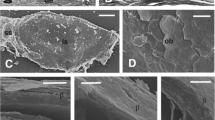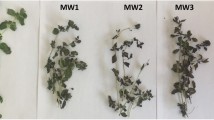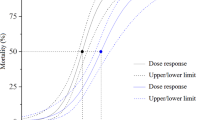Abstract
DURING investigations into the carbohydrases of insects1 in the winter of 1957–58 it was found that the macerated tissue of the dormant larvae of the wood-boring insect of the species Melandrya striata, found in felled wood of Salix amygdaloides Anderss., contained a considerable proportion of glycerol as revealed by paper chromatography. This preliminary observation indicated that glycerol might be acting as an ‘anti-freeze’,2 a view supported by the observation that the larvae and the adult insects of M. striata did not contain glycerol during summer.
This is a preview of subscription content, access via your institution
Access options
Subscribe to this journal
Receive 51 print issues and online access
$199.00 per year
only $3.90 per issue
Buy this article
- Purchase on Springer Link
- Instant access to full article PDF
Prices may be subject to local taxes which are calculated during checkout
Similar content being viewed by others
References
Dubach, P., Pratt, D., Stewart, C. M., and Smith, F. (unpublished).
Salt, R. W., Can. J. Zool., 37, 59 (1959).
Author information
Authors and Affiliations
Rights and permissions
About this article
Cite this article
DUBACH, P., PRATT, D., SMITH, F. et al. Possible Role of Glycerol in the Winter-Hardiness of Insects. Nature 184, 288–289 (1959). https://doi.org/10.1038/184288b0
Issue Date:
DOI: https://doi.org/10.1038/184288b0
This article is cited by
Comments
By submitting a comment you agree to abide by our Terms and Community Guidelines. If you find something abusive or that does not comply with our terms or guidelines please flag it as inappropriate.



